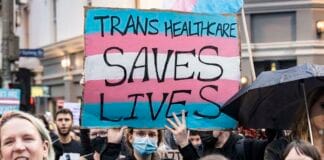The Queensland LNP’s decision to race to the polls in January is a very calculated bid to hang onto power. The polls only looked like getting worse for Campbell Newman. Unemployment remains high with the state losing 741 full-time jobs a month since the LNP came to power.
Newman has wanted as much distance as he could get from Abbott and the May federal budget. So Queensland is having its first January state election since 1913.
Polls have Labor in front, but it will be astonishing if Queensland Labor wins the election. Its 2012 defeat was historic.
But even winning 30 odd seats will be a dramatic blow to Abbott. And getting rid of Campbell Newman in own seat of Ashgrove will be a bonus!
Newman’s smash and grab
Newman and the LNP’s problems began almost immediately after winning in 2012. They appointed former Liberal Treasurer Peter Costello and paid him $3300 a day to write a Commission of Audit report that would justify savage cuts to public services and jobs.
Newman had specifically promised public servants that they had “nothing to fear”, but he went on to sack 14,000 of them.
These attacks provoked outrage and large community protests. In September 2012, only five months after the election, the unions held a 10,000 strong work-day protest.
Rather than mobilising for strikes – teachers voted to take illegal strike action in 2013 – the union leaders steered the anger against Newman into a “long campaign” to get Labor re-elected.
Newman miscalculated on numerous issues. Newman is seen as an arrogant bully rather than a decisive leader, reminiscent of Joh Bjelke-Petersen, the notoriously conservative, developer-friendly, National Party Premier between 1968-1987.
Following a bikie brawl on the Gold Coast, Newman went on a law and order crusade, introducing draconian laws that were widely seen as over-the-top.
His attempt to bully public hospital doctors into accepting new contacts led to threats of mass resignations and was not popular with the public.
A bruising fight with Queensland’s legal fraternity over installing judges regarded as LNP cronies and his attempt to hobble the Crime and Corruption Commission likewise backfired. So did his arrogant dismissal of threats to the Great Barrier Reef, saying “we are in the coal business”.
Newman attempted to soften his image after the LNP was thrashed in Stafford last July, acknowledging “mistakes”. But it didn’t work.
Newman wants a mandate for a $37 billion privatisation (branded as long-term leases) of power and ports.
Only six years ago, Labor had its own privatisation plan and lost the 2102 election because of it. Labor now says it is opposed to Newman privatisations. But its counter-plan to merge Energex, Powerlink and Ergon will cost jobs. Promising no forced redundancies is not good enough. Labor is also promising more teachers and smaller class sizes.
A determined union campaign could have beaten back Campbell Newman in 2012. The unions’ energies since then have been directed into an electoral campaign picketing LNP offices and country cabinet meetings, and holding road-side protests to remind people of Newman’s privatisation agenda.
Any substantial loss of seats for the LNP will be a blow against Abbott. But if the LNP government is returned on 31 January, it will be the unions’ industrial power that will be needed to fight privatisation.
By Mark Gillespie





